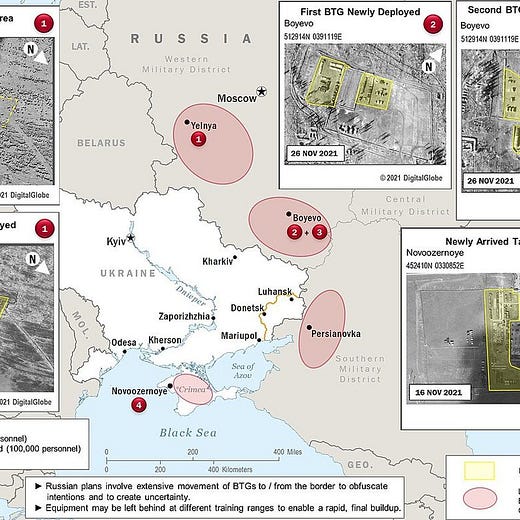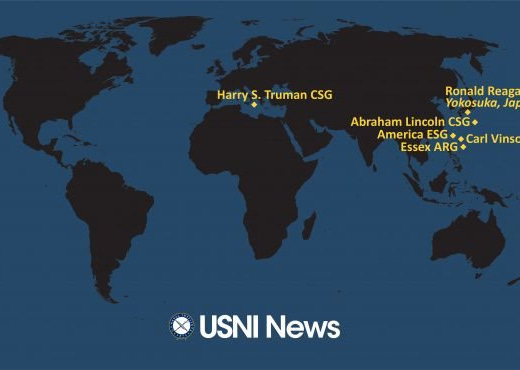The Long Game 89: Infertility & Lifestyle, Amp It Up, Exercise & Anxiety
👩🔬 Scientific Funding, Timing of Books, Ukraine, Intimacy, Arctic Silk Road, Chinese Efficiency, and Much More!
Hi there, it’s Mehdi Yacoubi, co-founder at Vital, and this is The Long Game Newsletter. To receive it in your inbox each week, subscribe here:
In this episode, we explore:
Infertility
Exercise and anxiety
The timing of books
Amp It Up!
Scientific funding
The Arctic Silk Road
Let’s dive in!
🥑 Health
🍼 Infertility: A Lifestyle Disease?
I wrote a couple of times about infertility in the newsletter. Specifically, after reading Count Down: How Our Modern World Is Threatening Sperm Counts, Altering Male and Female Reproductive Development, and Imperiling the Future of the Human Race.
I came across this great article yesterday, it’s resurfacing some of the critical components of the looming fertility crisis.
Probably the most popular (and controversial) work regarding infertility comes from Shanna Swan, an environmental and reproductive epidemiologist and professor at the Icahn School of Medicine at Mount Sinai. In her book Count Down, Swan finds that sperm count in Western men has dropped by more than 50% in the last forty years. Even more shocking, Swan predicts that by 2045, we’ll have a median sperm count of zero, and most people will have to use ART to reproduce. The cause of this “Spermageddon?” Swan points to weight, alcohol, smoking, and, most importantly, endocrine disruptors.
Recent research suggests the detrimental role of endocrine disruptors.
So, what are options and treatments for infertility? The simple answer is to subtract: remove all the substances hindering the body from being in its natural, fertile state. If you look around, humans have been reproducing just fine for a while— the addition of toxic chemicals, alcohol, and processed foods are preventing us from being able to procreate naturally. On a practical level, we obviously can’t get rid of all chemical exposure overnight, and certainly not at the individual level. What we can do is reduce plastic use, eat organic food, and use clean beauty and household products. Another important but underrated area to focus on? Gut health.
Focusing on being healthy overall (the right diet, no processed foods) can be enough to fix a lot of fertility issues:
Lastly, microplastics and toxic chemicals have a better chance at exiting the body if we have healthy digestion and elimination. Eliminative organs like the liver, kidneys, and colon aren’t just processing what we eat— they’re also flushing out substances that shouldn’t be in our bodies, like endocrine-disrupting chemicals. If we overburden our eliminative organs with a poor diet, our system can become sluggish in getting rid of chemicals. We can avoid this by eating a diet that’s high in fiber and easy-to-digest foods. This means reducing/eliminating processed foods and eating a lot of fruit and vegetables. One study found a 60% reduction in BPA levels when participants ate fresh food— as opposed to packaged food— after only three days.
It’s empowering to know how much diet affects reproductive health. This way, we can have more control over at least one facet of fertility. It’s not all doom and gloom!
I expect the fertility tech space to be a huge area of innovation in the next decade.
🌱 Wellness
🏃♀️ How Exercise May Tame Our Anxiety
In case you needed additional motivation to start or continue exercising regularly:
To better cope with all the dispiriting news this winter about rising Covid-19 cases and so much else, you might want to get out and play in the snow, according to a new report. The large-scale study of almost 200,000 cross-country skiers found that being physically active halves the risk of developing clinical anxiety over time. The study, from Sweden, focused on skiing, but the researchers said almost any kind of aerobic activity likely helps protect us against excessive worry and dread, a cheering thought as we face yet another grim pandemic season.
To pair with: The Opposite of Anxiety
I define non-clinical anxiety as, "experiencing failure in advance." If you're busy enacting a future that hasn't happened yet, and amplifying the worst possible outcomes, it's no wonder it's difficult to ship that work.
With disappointment, I note that our culture doesn't have an easily found word for the opposite. For experiencing success in advance. For visualizing the best possible outcomes before they happen.
Will your book get a great testimonial? Write it out. Will your talk move someone in the audience to change and to let you know about it? What did they say? Will this new product gain shelf space at the local market? Take a picture.
🧠 Better Thinking
📚 The Right Book at the Right Time
We hear a lot of discussions about good books, book recommendations, and more. However, one key component of reading isn’t discussed as much: the timing of the books you read.
Some books can change your life if you pick them up at the right time for you. For example, I read Healing Back Pain last January when I was ready to accept the mind-body diagnosis. I think that if I had read it one year earlier, I might not have accepted this diagnosis and would have stayed stuck with my chronic back pain much longer.
When making book recommendations to someone, it’s worth trying to understand how their current life situation will be adapted or not adapted to specific books.
⚡️ Startup Stuff
🚂 Amp It Up
Ever since I found out Frank Slootman’s Amp It Up! article, I read it once a week. He recently came out with a book to give more details and context. I read it last week, and it’s excellent.
Here are some key elements of the book:
The five key steps in the Amp It Up process:
Raise your standards
Align your people
Sharpen your focus
Pick up the pace
Transform your strategy
Raise your standards
“Try applying “insanely great” as a standard on a daily basis and see how far you get. People lower their standards in an effort to move things along and get things off their desks. Don’t do it. Fight that impulse every step of the way. It doesn’t take much more mental energy to raise standards. Don’t let malaise set in. Bust it up. Raising the bar is energizing by itself. We should all be thrilled with what we’re doing. So channel your inner Steve Jobs. Aim for insanely great. It’s much more energizing!”
Sharpen your focus
“Leaders can do two things that bring almost instant benefit. First, think about execution more sequentially than in parallel. Work on fewer things at the same time, and prioritize hard. Even if you’re not sure about ranking priorities, do it anyway. The process alone will be enlightening.”
““Priority” should ideally only be used as a singular word. The moment you have many priorities, you actually have none.”
Pick up the pace
“Leaders set the pace. People sometimes ask to get back to me in a week, and I ask, why not tomorrow or the next day? Start compressing cycle times. We can move so much quicker if we just change our mindset. Once the cadence changes, everybody moves quicker, and new energy and urgency will be everywhere. Good performers crave a culture of energy.”
Transform your strategy
“While everybody else has their head down, you need to have your head up, to confront both the need and the opportunity for strategic transformation. Develop a healthy sense of paranoia about your business model because your competitors are surely trying to disrupt you.”
Hiring
Hire for hunger and aptitudes.
“I still try to hire more for aptitude than experience. We don’t always require been-there, done-that types. Checking boxes on a resume is easy. Assessing aptitude is harder. Look for hunger, attitude, innate abilities. Perhaps, look for the same career-frustrated person I had been all these years. It was quite satisfying to turn this into a high-powered strategy to drive business. I ended up with better, cheaper, more loyal, more motivated talent than we would have with a conventional hiring mentality. It does come with risk, but there is always risk in hiring. I have misfired with great resumes plenty of times.”
Be mission-driven
“A clear and compelling sense of mission has been one of the essential keys to our consistent success and growth. Time after time, our focused missions helped us relentlessly pursue each company’s promise and potential. Being mission-driven helped our people become motivated, focused, impatient, and passionate— maybe even a bit zealous.”
“Being on a mission is a visceral experience, not merely an intellectual one. When your organization has a well-defined purpose, you feel it down to your bones. You feel energized when you start the workday, and you feel good about whatever progress you’ve made toward the mission when you shut down for the night.”
Nail down your mission
It should be big but not impossible. It should also be clear and not about money targets.
“Snowflake’s current mission is to mobilize the world’s data by building the world’s greatest data and applications platform, not just of the cloud era, but in the history of computing. This is a wildly ambitious vision!”
Do not accept incrementalism. It lacks boldness and audacity.
“Another human tendency is to approach things incrementally, from an abundance of caution. It feels safer to inch forward rather than take bold leaps. Incrementalism is about avoiding risk by building on whatever has already been achieved as a stable foundation. But merely trying for marginal improvements on the status quo carries its own risks.”
Execution should be ahead of strategy because great execution is rarer than great strategy.
“Strategy can’t really be mastered until you know how to execute well. That’s why execution must be your first priority as a leader. Worrying about your organization’s strategy before your team is good at executing is pointless. Execution is hard, and great execution is scarce—which makes it another great source of competitive advantage.”
Your people need to be drivers, not passengers, and the wrong people need to get off the bus.
“Leaders who do not act will soon find out that their leadership is in question. Everybody is watching: not just what you are doing but also what you are not doing. Ultimately, leaders are only as good as the people they surround themselves with. Once you get good at both hiring and firing, you are well on your way to great results and a thriving career.”
Build a great culture, and your culture is what you do, not what you say.
📚 What I Read
🚫 Perhaps Not Everything is Eugenics
Freddie deBoer on the recent obsession with calling everything “eugenics.”
One of the things I discovered early, in my little political niche, was the obsession with magic words. Leftists were forever throwing emotionally loaded terms around, like when the coffeehouse didn’t have raw sugar and they called it fascism. It’s not really hard to understand why: when you have no power, you resort to mysticism. You instill words with powers they can’t really have because you’re desperate to feel in control of something, anything. That’s what “eugenics” has become online; it’s not much different from your average depressed wine mom talking about Mercury being in retrograde. They all just want to feel a little bit of power.
⚰️ The Death of Intimacy
Insightful essay on the decline of sex and intimacy in Gen Z.
What’s happening in heterosexual couplings now is also, crucially, about what isn’t happening: a sexual famine amongst Gen Z, who are upending the entire romantic landscape as they come of age. There is less sex, but also less dating, less social interaction writ large without the intermediary of a screen.
This isn’t the free love of the sexual revolution, nor the sex positivity espoused by the commitment-free hookup culture that reigned in the early Noughties. It’s something new, and also something post-#MeToo, and perhaps not entirely unrelated to our contemporary obsession with consent as the primary (sometimes only) framework for determining if a given encounter was good or not. Meeting strangers on the internet went in a generational spasm from being maximally unsafe to the only way to do things, as the existence of dating apps rendered the old ways of connecting not just quaint, but creepy.
🇺🇦 War/Words (Part One)
A good explanation of the risk of war in Europe:
In case you missed it, the threats of war are flying around faster than fighter jets in recent days. On January 3rd, in an incredibly rare joint statement, the P5 superpowers, Russia, China France the UK and the US, said, “We affirm that a nuclear war cannot be won and must never be fought. As nuclear use would have far-reaching consequences, we also affirm that nuclear weapons—for as long as they continue to exist—should serve defensive purposes, deter aggression, and prevent war.”
This might normally be seen as part of the slow and ongoing effort to return to nuclear arms reduction talks. But the recently appointed Chief of the Defence Staff in the UK, Admiral Sir Tony Radikin, said that the cutting of the undersea internet cables in Norway on January 7th could be seen as “an act of war”. It seems that someone cut one of the two core internet cables in Norway (Svalbard) that supply the International Space Station and many commercial and military satellites. NATO clearly suspects that it was done by Russian submarines. In response, NATO’s Secretary-General said there is “a real risk for new armed conflict in Europe”.
To pair with: Russia and China’s plans for a new world order
🎙 Podcast Episodes of the Week
This week in podcasts:
Snowflake CEO Frank Slootman: taking ownership, increasing velocity & cultivating talent
A great introduction to Slootman’s ideas if you don’t have the time for the book.
🍭 Brain Food
👩🔬 New Ways of Funding Science
We need to make sure that our scientific knowledge keeps improving to keep progress going. The best way to do that is to radically improve scientific funding to enable many more scientists to pursue “crazy” ideas.
Derek Thompson has an excellent write-up on how Silicon Valley is trying to launch a new era of science labs and scientific projects.
If the problem is obvious, the solution might be straightforward too: We need more funding for young, visionary scientists. That’s the plan at New Science, a research nonprofit led by Alexey Guzey. The institution has raised millions of dollars from donors including Buterin and Jaan Tallinn, a co-founder of Skype, which it plans to distribute to young scientists. How young? “If a really talented undergraduate applies to us with an ingenious idea, we might fund them,” Guzey told me. “That could include paying for a full-time research technician, having a scientific co-founder join them, or leveraging their talents in some other way that would not be possible in academia.”
I don’t want to suggest that Silicon Valley might single-handedly fix America’s science problem. (The low-hanging objections—Oh, like Silicon Valley fixed our democracy problem?—are too many to count.) But nobody I spoke with for this story thinks of Silicon Valley as American science’s lonely savior. “I don’t want this to be Silicon Valley versus the scientific establishment,” Avasthi said. “I think we could all benefit from more experiments in scientific funding, and I want these experiments to reach far beyond the Bay Area.”
I am confident, however, that these experiments will reveal something important about the nature of science. For all the wonders of scientific discovery, we weirdly don’t know much for sure about how scientific discovery works; how to organize complex teams to solve wicked problems in biology; or how to get the most bang for our buck in funding these efforts. We need a better science of science, which means that, overall, we need more information. A Cambrian explosion of start-up science experiments will, if nothing else, give us plenty of data.
🎥 What I’m Watching
🇨🇳 The Myth of Chinese Efficiency
A deep-dive on the frequently held belief that China is so efficient in building things. They might be building well and fast, but a lot of what they’re building isn’t solving any of their problems and actually creating issues.
🇷🇺 Why Russia is Building an Arctic Silk Road
Russia is set to be one of the big winners of climate change. The new shipping route opening in the Artic halves the time needed to go from Asia to Europe.
🔧 The Tool of the Week
📊 Notion Health Tracker Template
In case you missed it last week!
So many people find value in tracking their health and habits in the same place every day. At some point, it will all be possible on Vital, but in the meantime, we came up with a template to do so on Notion!
🪐 Quote I’m Pondering
We've always defined ourselves by the ability to overcome the impossible. And we count these moments. These moments when we dare to aim higher, to break barriers, to reach for the stars, to make the unknown known. We count these moments as our proudest achievements... And that our greatest accomplishments cannot be behind us, because our destiny lies above us.
— Interstellar
If you enjoyed this newsletter, make sure to subscribe if you haven’t 👇
👋 EndNote
Thanks for reading!
If you like The Long Game, please share it on social media or forward this email to someone who might enjoy it. Podcast reviews are also gratefully received. You can also “like” this newsletter by clicking the heart just below this, which helps me get visibility on Substack.
Feel free to email me or find me on Twitter if you have any feedback or questions.
Until next week,
Mehdi Yacoubi
PS: Lots of newsletters get stuck in Gmail’s Promotions tab. If you find it in there, please help train the algorithm by dragging it to Primary. It makes a big difference.







